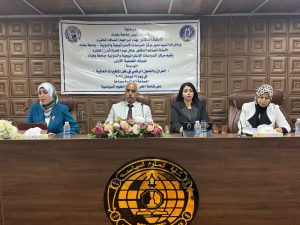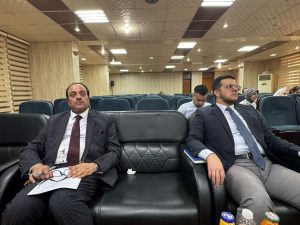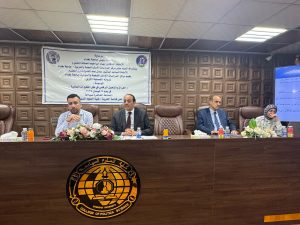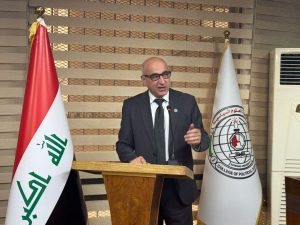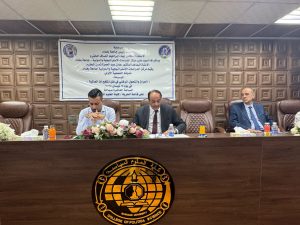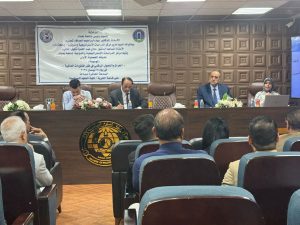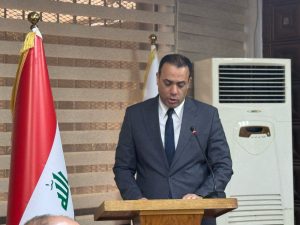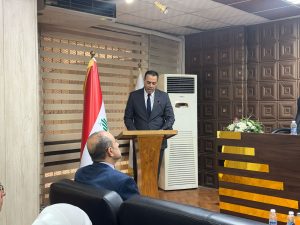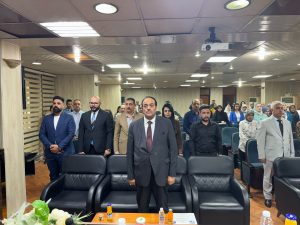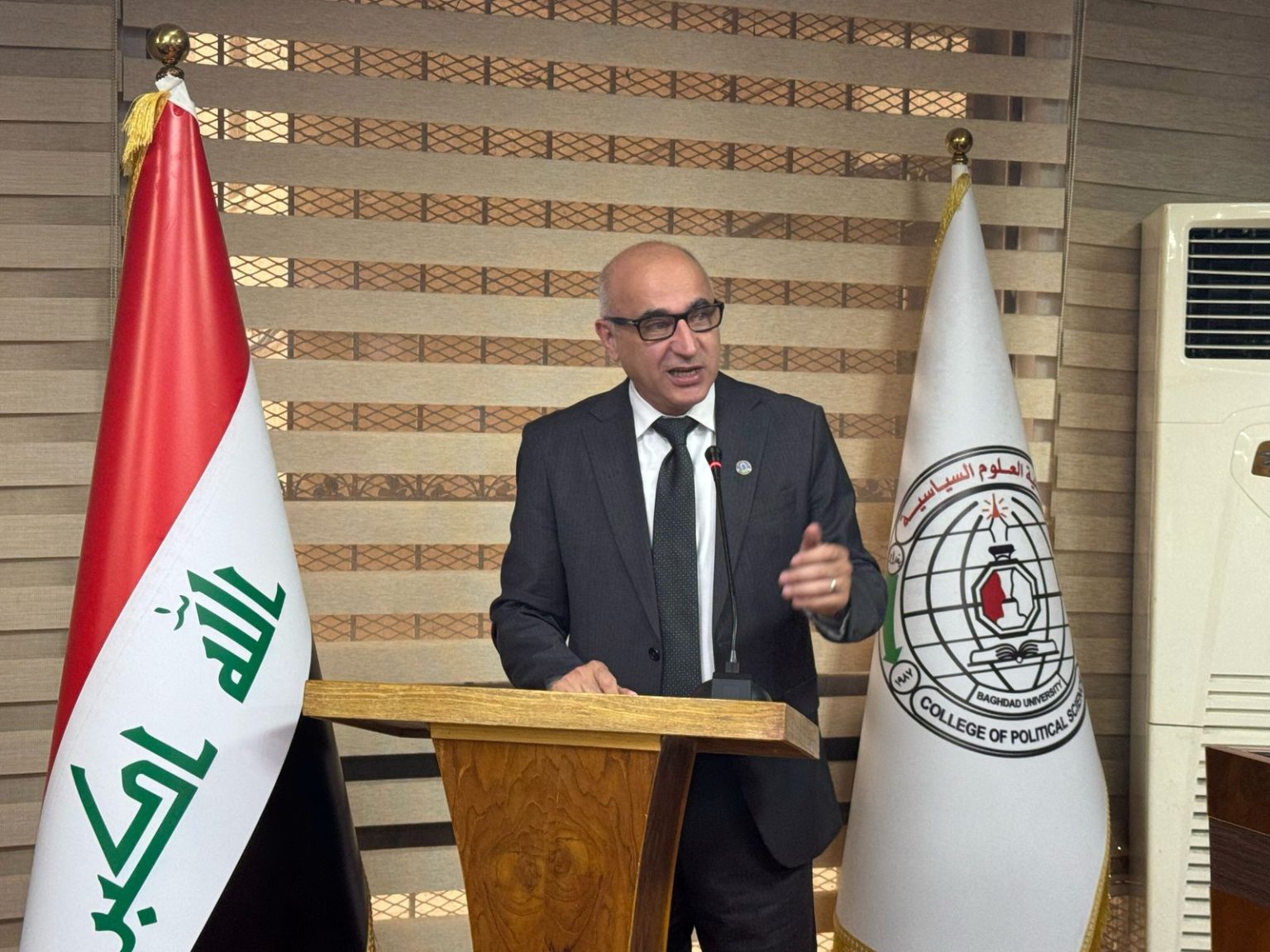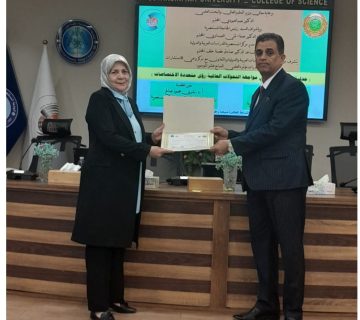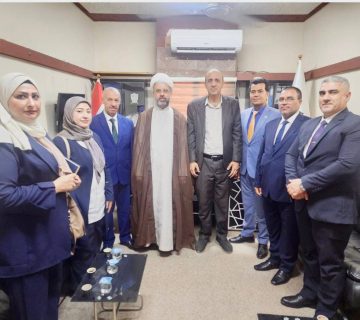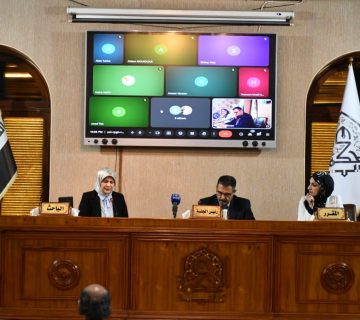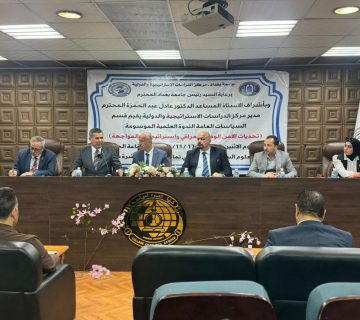Media and Government Communications Unit
The Centre for Strategic and International Studies at the University of Baghdad convened its first quarterly symposium under the supervision of Dr Adel Al-Badawi, Director of the Centre, entitled “Iraq and Digital Transformation amid Global Change.”
The symposium was held in the presence of Professor Dr Baha Ibrahim Ensaf, President of the University of Baghdad, alongside a distinguished assembly of academics and specialists in technology, politics, and economics, both from within the university and from external institutions.
The event explored several core themes centered on the importance of digital transformation in Iraq and its vital role in strengthening good governance, modernizing digital infrastructure, and enhancing the quality of public services—particularly in the context of rapidly evolving regional and global dynamics.
The symposium featured the presentation of a number of research papers which examined the primary challenges facing Iraq in its digital transition. These included the underdevelopment of technological infrastructure, limited availability of skilled professionals, and the need for adaptive legislative frameworks that support digital progress in line with global standards.
This symposium aligns with two key Sustainable Development Goals (SDGs): Goal 4 – Quality Education, and Goal 17 – Partnerships for the Goals.
Major Outcomes and Recommendations of the Symposium:
- Develop a comprehensive national digital transformation strategy, including a clearly defined roadmap aligned with Iraq’s Vision 2030.
- Modernize and expand digital infrastructure, with strategic investment in telecommunications and internet networks to ensure equitable access across all provinces.
- Support fiber-optic network development and extend 4G and 5G coverage, particularly in rural and underserved regions.
- Invest in human capital and promote digital literacy through targeted training programmers in digital skills, artificial intelligence, and data analytics.
- Reform and update legislative frameworks relevant to digital transformation, including laws on data protection, cyber security, and electronic signatures.
- Encourage innovation and digital entrepreneurship by establishing incubators and accelerators, and supporting start-ups in the technology sector.
- Enhance international and regional cooperation, building partnerships with countries and institutions that have achieved significant milestones in digitalization.
- Draw upon global best practices, particularly those of countries such as the UAE, Singapore, and Estonia, and collaborate with organisations such as the World Bank and the European Union.
- Digitise public services by expanding the scope of e-governance to include services such as passports, identity documents, licensing, and taxation.
- Establish a unified government portal equipped with digital identity verification and inter-ministerial integration, supported by AI-driven data analytics to inform evidence-based decision-making.
- Embrace emerging technologies such as artificial intelligence and the Internet of Things in national projects, including smart cities and systems for environmental and public health monitoring.
The symposium concluded with the presentation of certificates of appreciation to participating scholars and researchers, in recognition of their outstanding contributions, which significantly enriched the academic depth and practical relevance of the event.
